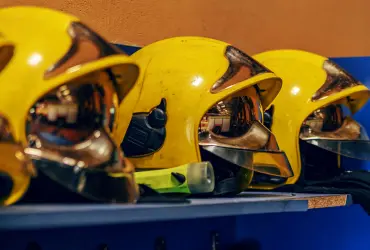Turn All Business Travel Into a Holiday
with a Team That Understands
What You Need
Upcoming Trade Shows in Germany for Fire Protection

INTERSCHUTZ 2026, Hannover, Germany
1 - 6 Jun 2026

FeuerTrutz 2026, Nurnberg, Germany
24 - 25 Jun 2026

security essen 2026, Essen, Germany
22 - 25 Sep 2026
Germany’s fire protection industry is perhaps the most rigorously regulated compared to its fellow EU members as a significant portion of the building code is devoted to fire safety. The country’s approach to fire protection is both comprehensive and intricate. However, the complexity of regulations, which vary from state to state, presents some challenges for the industry. In Germany, fire protection is predominantly governed by state laws derived from the building code, which dedicates up to 80% of its regulations to fire safety. These rules address various building types, from residential homes to high-risk venues like movie theaters and exhibition halls. Buildings are classified into five classes based on their size and hazard level, with Class One encompassing single-family homes and Class Five covering large apartment buildings typical of Berlin.
The variation in regulations across the 16 federal states adds layers of complexity. For instance, fire safety requirements in Baden-Württemberg may differ significantly from those in Berlin, complicating planning and compliance for builders and developers. This regulatory diversity can lead to inefficiencies and inconsistencies, as highlighted by the persistent difference in the size of rescue windows in Bavaria compared to other states. Despite the rigorous regulatory environment, Germany lacks comprehensive national statistics on fire-related fatalities. Estimates suggest that around 400 people die in fires annually, though the exact figures can vary based on definitions and data collection methods.
A critical debate within the industry revolves around the balance between structural, technical and organizational fire protection measures. Comprehensive safety requires a harmonious integration of all elements, from non-flammable materials to advanced warning systems. While non-flammable materials can withstand fires for extended periods, they are costly. Conversely, smoke detectors are inexpensive and crucial for early warning. The industry is shifting focus from merely enhancing fire resistance to investing in advanced detection and alarm systems.
GET A FREE QUOTE
Looking for a hotel accommodation for particular trade show or exhibition.
Send us a general enquiry and we will find the best options for you
Send us a general enquiry and we will find the best options for you